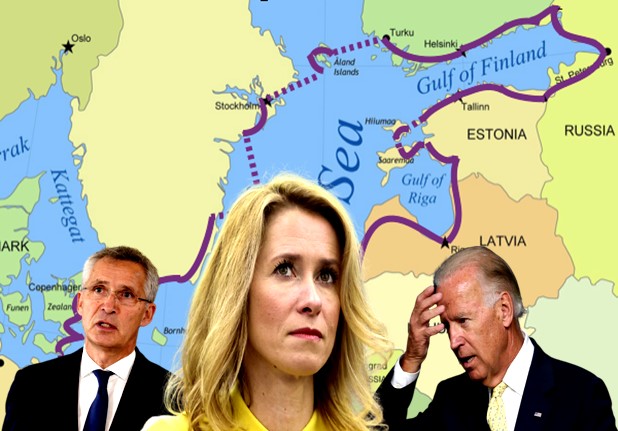As the Russo-Ukraine war drags on, the three Baltic Nations are under mounting pressure, turning into a red zone in the process. By irking Russia in the early days of the war, the Baltics have put themselves in the crosshairs of possible next aggression.
The Russian State Duma has already started discussing recognition of Lithuania’s independence, as the Kaliningrad issue has spurred tensions. Along with it, Moscow may subsequently also revoke recognition of the independence of Estonia and Latvia.
Seeing this, it should have been the responsibility of NATO to provide adequate assistance to call off the tensions. But, NATO allies knowingly have hit the hay and kept a total mum over the rising tensions.
So, the three countries have started to break the mould by openly expressing discontentment against NATO actions and plans.
Latvia restarts Military Conscription
The Baltic state of Latvia has started to reinstate compulsory military service amid growing tensions with Russia. It is to be noted that Latvia scrapped mandatory military service a few years ago after joining the NATO military alliance.
The Latvian defence minister, Artis Pabriks stated, “The current military system of Latvia has reached its limit. Meanwhile, we have no reason to think that Russia will change its behaviour.”
Presently, there are just 7,500 active-duty soldiers and national guard members in the nation, which borders Belarus and Russia. These soldiers are supported by 1,500 NATO troops. Since 2007, Latvia’s armed forces have been made up of career soldiers and part-time national guard volunteers who serve in the infantry.
However, the Russo-Ukraine conflict has helped Latvia realise that NATO is not a reliable force. It has resumed its mandatory military service specifically for this reason in order to become a significant autonomous force.
Read More: A war of words breaks out between fearful Baltic nations and EU over the Kaliningrad blockade
Lithuania-Kaliningrad Tensions and Estonian discontentment
The root cause of the tensions between Lithuania and Russia is particularly the Kaliningrad transit route. Lithuania had blocked Russian exports to the province of Kaliningrad. This was heavily chastised by Moscow, alerting Lithuania to stop playing with fire.
After a lengthy blame game between Russia and Lithuania, the European Union admitted that its real goal was to create a new front against Russia in order to pressure Moscow into accepting Ukraine’s demands. The EU’s foolishness eventually caught up with it when Lithuania compelled the EU to reverse multiple sanctions in order to resume the transit route, forcing the Union to abandon its original plan. As a result, when it came to the EU’s sanctions against Kaliningrad, Lithuania and NATO were at odds.
Moreover, if one remembers correctly, Estonian Prime Minister Kaja Kallas lashed out at existing defence plans of NATO for the three Baltic states—Estonia, Latvia, and Lithuania— stating that the intergovernmental military alliance’s plan is to “allow them to be overrun before liberating them after 180 days”.
Kallas while criticizing NATO had told the Financial Times, “Those of you who have been to Tallinn and know our old town and the centuries of history that’s here and centuries of culture that’s here— that would all be wiped off the map, including our people, our nation.”
Read More: Biden and Co will come to Estonia’s rescue exactly six months late, in case Russia attacks
So you see, there’s a pattern here. The already shaky security ties between the EU, NATO, and the Baltic states are now being further engulfed with scepticism. The belief is rising that NATO is good for nothing, hence Baltic nations have started revolting publicly.
It could be just a matter of time before the nations officially start blasting NATO and its allies for spurring tensions with Russia and furthermore adopt a peace route themselves with Russia. They might end up ditching NATO and the EU altogether and adopt neutrality to stave off the Russian threat.
